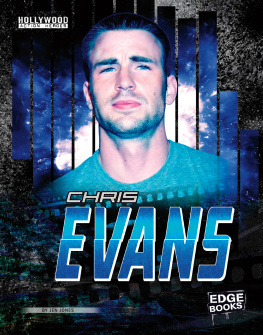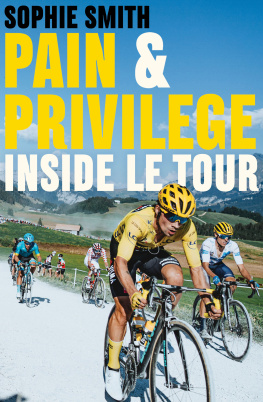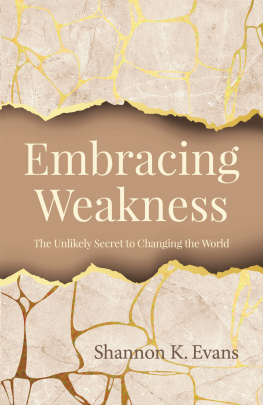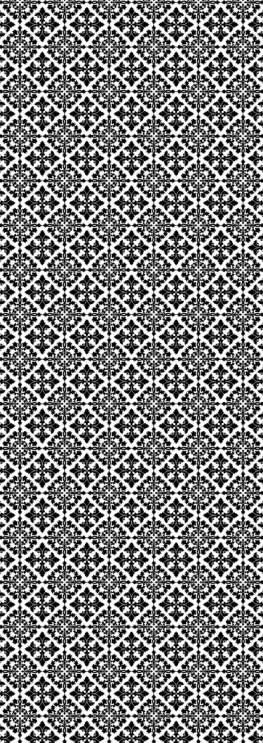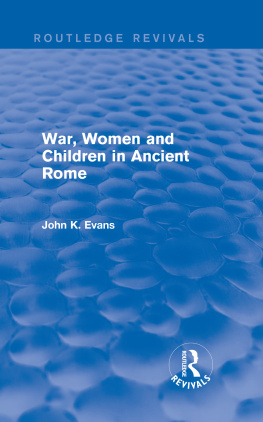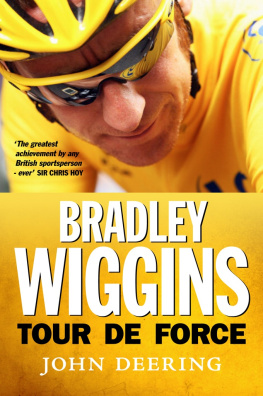CONTENTS
C adel Evans hunched over his bike. Behind mirrored sunglasses his bright blue eyes stared straight ahead, focussed and intense. This was ita make or break moment.
As he waited for the starters signal, Cadel knew one thing for sure. Nail the ride ahead of him and the entire 21-stage race could be his. And this wasnt any old race. That day, 23 July 2011, Cadel had a shot at winning the biggest, baddest and most famous bike race of them all the Tour de France.
Cadel knew exactly how tough this race could be. It was his seventh time competing in the Tour. He had been runner-up twice before. Could Cadel go all the way this time?
So far the 2011 Tour had gone smoothly for the Australian rider. Cadel was at peak fitness and his team was performing well. The day before, Cadel had moved himself into third position in the race overall with a brilliant attacking ride. Luxembourg brothers Andy and Frnk Schleck were still ahead of him, but only 57 seconds separated Cadel from the top spot.
It was Stage 20. Cadels start was just ten seconds away.
This stage was the deciderthe last day of racing. The overall race leader at the end of Stage 20 would enjoy a ceremonial ride through the streets of Paris the next day, all the way to the winners podium.
Five seconds to go. Camera crews and journalists hovered near the start line. The massive crowd lining the streets of the French city of Grenoble cheered, clapped and waved their flags wildly. Back home in Australia, hundreds of thousands of fans were cheering for Cadel in front of their televisions.
Despite all the excitement, Cadel was calm. Poised on the start ramp, with muscles primed and eyes forward, he was ready to give his best.
Troisdeuxun The buzzer sounded. Cadel rolled down the ramp and shot onto the road.
This stage was an individual time triala pure and simple battle of an individual rider against the clock. Each rider completed the stage, one by one. That day Cadel rode third last. Then it would be Frnk Schlecks turn and finally Andys. Cadel knew he could gain precious seconds on the brothers if he rode well now.
Cadels teammates from BMC Racing had already finished the stage. They warned Cadel not to go out too hard at the start. It was a hot and humid day, and there were two punishing climbs and a tricky descent to come.
Cadel ignored his teammates advice. He went out fast on the first flat stretch and his pace barely slowed when he reached the first climb. His plan was to smash the Schlecks lead.
He tore through the village of Brie-et-Angonnes. Then, descending at high speed, Cadel barrelled into a sharp left turn and powered through a tunnel. The road was rough and potholed. Cadel bared his teeth. He pushed harder and harder, his bike shaking beneath him.
At the other side of the tunnel was the first official time check. Cadel was 33 seconds ahead of overall race leader Andy Schleck. At the second time check Cadel led Andy by almost two minutes. Cadels team was feeding him this information via the radio in his helmet. So he knew he wasnt just edging ahead of his rivals. He was pummelling them.
After that, Cadels team gave him no more time checks on the Schlecks. His teammates wanted Cadel to slow down, just a little. The final descent was steep and dangerous at high speed. Cadel loved descending at spectacular speed, but right now that would be too risky. The last thing he needed was a crash.
Cadel rocketed into the final descent, turning left and right, cornering hard. If only he could hold it together for a few more kilometres
Cadel crossed the finish line in 55 minutes 40 seconds. When Frnk Schleck and then Andy finished their time trials soon after, the result was clear. Cadel was two minutes 31 seconds ahead of his closest rival. It was an unbeatable lead. Cadel had done it. After his epic ride, he was the overall race leader.
The moment was electric. Cadels teammates and coaches hugged. The crowd pounded on the metal barriers lining the road. Journalists swarmed. Everyone was buzzing.
Incredibly, Cadel remained calm. He walked up onto the bright yellow podium where he was presented with the most prized jersey in world cyclingthe Tour de France race leaders yellow jersey.
Cadel raised his arms in a modest victory salute. The crowd cheered and whistled and clapped. To be awarded the yellow jersey meant so much. Tears pooled in Cadels eyes. In that moment Cadels emotions overwhelmed him.
His dream was coming true. It was a dream hard fought for, one that had pushed him to his limits and beyond. Wearing the yellow jersey on the podium that day, Cadel knew his dream to win the Tour de France was finally within reach.
Later that night, back at the hotel, Cadels phone hardly stopped ringing. Family and friends wanted to congratulate him. Even Andy Schleck called to say well done.
In a quiet moment Cadel took off his sweaty yellow jersey and draped it over the back of a chair. Hed only just got into the bath when the phone rang again.
It was Australias prime minister, Julia Gillard. She was calling to tell Cadel how proud Australia was that night. No Australian had ever won the Tour. For Cadel, it was an incredible feeling to know his country was behind him. The next day almost one million Australians would tune in to cheer Cadel all the way to the finish line.
With just the ceremonial stage ride to go, Cadel Evans was the winner of the 2011 Tour de France. All he had to do was ride into Paris the next day. The only possible thing standing between Cadel and victory was some sort of disaster that would prevent him from crossing the finish line, like an accident or illness.
The race was his. Cadel hardly dared to believe it though. After the Stage 20 ceremony he was asked whether this success completed his cycling career.
Weve still got to cross the finish line in Paris tomorrow, Cadel answered. Then he laughed, nervously. Thats my main focus right now actuallygetting through there without any trouble.

Trouble can sometimes block the road to victory. While Cadel has enjoyed many successes throughout his road racing career, he has also suffered with bad luck. He has been seriously injured in races. He has crashed out in training. And he has missed out on wins by just a few cruel seconds. But none of this has ever stopped Cadel from giving his absolute best.
Very few people could do what Cadel does. He is one of the most naturally talented riders of his generation. On top of that, he has an incredible appetite for hard work. He often pushes his body to unbearable places, and he slogs his heart out in every race. But there is something special about Cadel, something much simpler.
Cadel just loves to ride. He feels most at home flying down mountains and tearing along dirt tracks, just him and his bike. All his life, bikes have been his passion. For Cadel, it is his love of riding that keeps him giving his best, day after day.
The Tour de France
The Tour de France is a race for professional road bike riders. Known around the world simply as the Tour, is the most famous and prestigious of all bike races. The race covers almost 3500 kilometres through France and neighbouring countries. The race route changes each year, but the Tours challenges remain the same. Its a punishing race that pushes the worlds best male riders to their limits.



